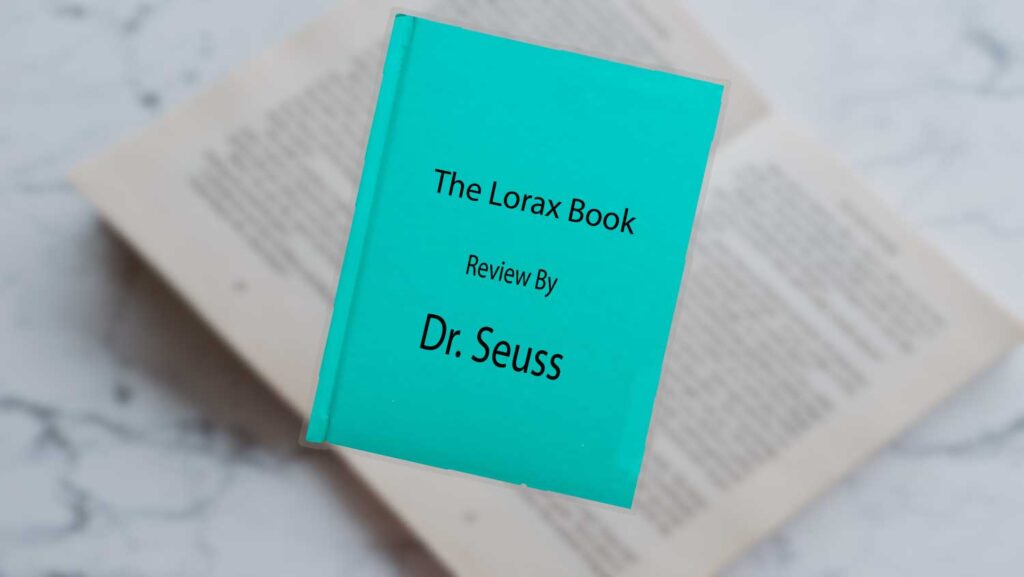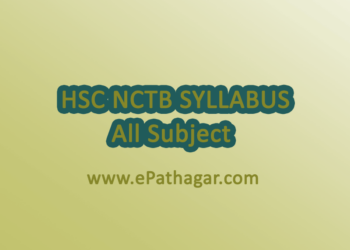The Lorax by Dr. Seuss is a timeless environmental tale that resonates with readers of all ages. Set in the fantastical land of Truffula Trees, the story follows the Once-ler, a greedy industrialist who relentlessly exploits the natural resources of the area, much to the dismay of the Lorax, a small, orange creature who speaks for the trees. As the Once-ler’s factories grow and the landscape becomes barren, the Lorax desperately tries to warn him about the consequences of his actions. Through vibrant illustrations and rhythmic prose, Dr. Seuss crafts a poignant allegory about the importance of environmental stewardship and the devastating effects of unchecked capitalism. The Lorax Book Summary remains a powerful reminder of our responsibility to protect the planet and the delicate balance of nature, urging readers to consider the impact of their choices on the world around them.
The Lorax Book Review
The Lorax by Dr. Seuss is more than just a children’s book it’s a powerful allegory that tackles complex environmental and social issues in a way that resonates with readers of all ages. Published in 1971, during a period of growing environmental awareness, the book remains as relevant today as it was over five decades ago. Through its whimsical characters, vibrant illustrations, and poetic language, The Lorax delivers a profound message about the consequences of unchecked greed and the importance of environmental stewardship.
At the heart of The Lorax book pdf is the story of the Once-ler, a mysterious figure who arrives in the tranquil land of Truffula Trees and discovers their extraordinary potential. Armed with his needle-making machine, the Onceler begins to harvest the tufts of the Truffula trees to create his versatile and profitable needles. However, his actions do not go unnoticed; the Lorax, a small, orange creature who “speaks for the trees,” emerges from the stump of a felled Truffula Tree to confront the Once-ler about the destruction he is causing.
The once-leader’s relentless pursuit of profit at the expense of the environment sets the stage for the central conflict of the story. As his Thneed business grows, so too does the demand for Truffula trees, leading to widespread deforestation and environmental degradation. The Once-ler’s factories spew pollution into the air and water, turning the once-pristine landscape into a desolate wasteland. Despite the Lorax’s pleas for him to stop, the Once-ler chooses to prioritize his own wealth and success over the well-being of the environment.
Through the character of the Lorax, Dr. Seuss gives voice to the trees and the natural world, emphasizing the interconnectedness of all living things. The Lorax serves as a moral compass, urging readers to consider the consequences of their actions and the impact they have on the world around them. His famous refrain I am the LoLorax, I speak for the trees. I speak for the trees, for the trees have no tongues,” underscores the importance of advocacy and speaking up for those who cannot speak for themselves.
The Lorax Book Summary also explores the theme of corporate greed and its devastating effects on both the environment and society. The Once-ler’s insatiable appetite for profit blinds him to the long-term consequences of his actions, leading to the destruction of the very resources upon which his business depends. As the Truffula Trees disappear and the landscape becomes increasingly barren, the Once-ler is forced to confront the consequences of his greed. However, by the time he realizes the error of his ways, it may be too late to reverse the damage he has caused.
Dr. Seuss’s masterful use of language and imagery brings the world of The Lorax to life, drawing readers into its whimsical yet thought-provoking narrative. His trademark rhymes and playful wordplay make the story a joy to read aloud, while his vivid illustrations captivate the imagination and convey the environmental devastation wrought by the Once-ler’s actions. From the colorful Truffula Trees to the grim, polluted landscape that replaces them, each detail serves to reinforce the book’s central message and evoke an emotional response from readers.
Despite its dark themes The Lorax ultimately delivers a message of hope and redemption. In the closing pages of the book, as the Once-ler reflects on the consequences of his actions, he entrusts the last Truffula Tree seed to a young boy, urging him to take responsibility for the future of the environment. The book ends with a powerful call to action, challenging readers to consider the impact of their choices and inspiring them to work towards a more sustainable and equitable world.
What are the weaknesses of this book?
The Lorax by Dr. Seuss is a beloved classic with many strengths, but it also has some weaknesses that may impact certain readers. One notable weakness is its simplistic portrayal of complex environmental issues. The book presents a clear dichotomy between the greedy Once-ler and the virtuous Lorax, which may oversimplify the causes and solutions to environmental degradation. By framing the problem solely as a result of individual greed and neglect, the book fails to address larger systemic issues such as corporate influence, government policies, and societal attitudes towards consumerism and growth.
Some critics argue that The Lorax book pages lack nuance in its treatment of capitalism and industrialization. While the Once-ler serves as a cautionary tale about the dangers of unchecked greed, the book offers little in the way of alternative solutions or paths forward. This black-and-white portrayal of capitalism may overlook the potential for sustainable development and responsible business practices to mitigate environmental harm.
The book’s didactic tone and heavy-handed messaging may be off-putting to some readers. Dr. Seuss’s use of rhymes and wordplay, while charming to many, can come across as preachy or moralizing to others. This didacticism may overshadow the book’s storytelling and limit its appeal to a broader audience.
Some readers may find fault with the book’s lack of diversity in its characters and perspectives. The Lorax book pdf primarily focuses on the interactions between the Once-ler and the Lorax, with few other characters or voices represented. This narrow scope may limit the book’s ability to address the diverse range of perspectives and experiences related to environmental issues.
The Lorax Book Summary remains a beloved classic that continues to inspire readers of all ages, it is not without its weaknesses. Its simplistic portrayal of environmental issues, lack of nuance in its treatment of capitalism, didactic tone, and limited diversity may detract from its overall impact for some readers.
Also Read: 1971 Humayun Ahmed PDF
The Lorax book age rating suitable ages of readers
The Lorax by Dr. Seuss is typically recommended for children aged 5 to 10 years old. This age range encompasses the book’s target audience, as its colorful illustrations, whimsical characters, and rhythmic language are engaging and accessible to younger readers. The story’s themes of environmental conservation and social responsibility can also serve as valuable lessons for children in this age group, helping to instill a sense of awareness and stewardship towards the natural world. Additionally, older children may appreciate the deeper meanings and moral complexities of the book, making it suitable for continued enjoyment and discussion beyond the early elementary years. However, it’s worth noting that individual maturity levels and sensitivities may vary, so parents and caregivers should use their discretion when determining whether “The Lorax” is appropriate for specific children. Overall, “The Lorax” is a timeless classic that can be enjoyed by readers of all ages, but it is particularly well-suited for children in the 5 to 10 age range.

How the writer could make this book more interesting?
To make The Lorax even more captivating, the writer could consider adding depth to the characters and storyline. Expanding on the backgrounds and motivations of characters like the Once-ler and the Lorax could provide readers with a richer understanding of their perspectives and actions. Introducing new characters or subplots could also add complexity to the narrative, offering fresh insights and opportunities for exploration. Additionally, incorporating more descriptive language and vivid imagery could further immerse readers in the fantastical world of Truffula Trees, enhancing their sense of wonder and engagement. Experimenting with different narrative techniques or structures, such as alternating viewpoints or nonlinear storytelling, could also add intrigue and suspense to the plot. Finally, the writer could weave in more subtle themes or messages, encouraging readers to think critically and draw their own conclusions about the story’s underlying themes. By incorporating these elements, the writer could elevate The Lorax Book Summary into an even more captivating and thought-provoking tale that resonates with readers of all ages.
Is this book popular in 2024?
“The Lorax” by Dr. Seuss has remained popular and relevant for decades, and it’s likely that its popularity has endured into 2024. As a timeless classic with a powerful message about environmental conservation and social responsibility, The Lorax continues to be widely read and appreciated by audiences of all ages. Its themes are universal and timeless, addressing issues that remain pertinent in contemporary society, such as deforestation, pollution, and corporate greed. Additionally, the book’s whimsical characters, vibrant illustrations, and rhythmic language make it a perennial favorite among children and adults alike. Its enduring popularity may also be attributed to its adaptability across various media platforms, including film adaptations, stage productions, and educational materials. Overall, “The Lorax” is likely to have maintained its popularity and relevance in 2024, continuing to inspire readers to take action and make a positive difference in the world.
Purchase This Book From Amazon
Should this book be worth reading now in 2024?
The Lorax by Dr. Seuss remains worth reading in 2024 and beyond. Despite being published in 1971, the book’s themes of environmental conservation, corporate responsibility, and the importance of speaking up for what is right are as relevant today as ever. In fact, with growing concerns about climate change, habitat destruction, and sustainability, the book’s message may resonate even more strongly with readers in the present day. Additionally, The Lorax Book Summary offers timeless lessons about the consequences of unchecked greed and the value of preserving the natural world for future generations. Its colorful illustrations, playful language, and memorable characters continue to captivate audiences of all ages, making it a timeless classic that can inspire meaningful discussions and actions. Whether read for its entertainment value or its thought-provoking themes, The Lorax book pages remain a valuable and worthwhile book to read in 2024, reminding us of our collective responsibility to protect and cherish the planet we call home.
Conclusion On The Lorax Book Summary
The Lorax Book Summary by Dr. Seuss stands as a timeless masterpiece that transcends generations with its poignant message and captivating storytelling. Through its whimsical characters, vivid illustrations, and rhythmic prose, the book addresses complex environmental and social issues in a way that is accessible and engaging for readers of all ages. Dr. Seuss’s imaginative world of Truffula Trees and Bar-ba-loots serves as a compelling backdrop for exploring themes of environmental conservation, corporate greed, and personal responsibility. While the book’s simplistic portrayal of these issues may be seen as a weakness by some, its enduring popularity and relevance attest to its lasting impact. “The Lorax” continues to inspire readers to think critically about the world around them and to take action in support of positive change. As we navigate the challenges of the 21st century, “The Lorax” remains a timeless classic that reminds us of the importance of speaking up for what is right and protecting the planet for future generations.













This Post Has 0 Comments